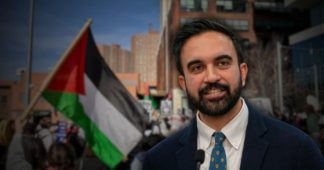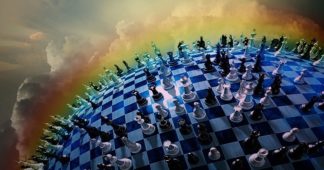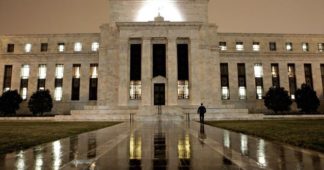The New York City mayoral front-runner has become the political vessel for a generation betrayed by greed, inequality, and elite capture.
His rise signals that the middle-class collapse and the exhaustion of neoliberal capitalism have finally found a voice — and a name.
By Nick Stamatakis
Nov 4, 2025
When betting markets move as one, they are not predicting mere victory — they are registering a social shift. In Zohran Mamdani’s case, the surge is unmistakable: the money now says the race is over. Yet the real story is not about odds or polling. It is about why so many New Yorkers — from renters in Queens to professionals in Brooklyn — have decided that Mamdani speaks for them. What the markets are measuring is not momentum, but a reckoning. Mamdani has become the focal point of a rebellion against an economic order that has stripped citizens of both wealth and dignity.
From the Postwar Middle-Class Miracle to the Age of Greed
The postwar decades forged a grand compromise between capital and democracy.
Haunted by the specter of communism, Western elites accepted profit limits and expanded the welfare state. One wage could buy a home, raise a family, and support the very idea of citizenship. In Europe, healthcare and college education are still largely free today. That middle-class security was not generosity — it was self-preservation.
But with the collapse of communism in 1990, the ideological guardrails vanished. Capitalism, unchallenged and unashamed, reverted to its oldest vice: greed. Industrial capitalism gave way to financial capitalism, where money itself became the raw material of profit. Financial corporations currently borrow at near-zero rates to buy homes and land, while citizens pay more than seven percent for mortgages. The result: the return of hierarchy, debt, and dependence — the social architecture of feudalism dressed in the language of the free market.
The Re-Feudalization of Everyday Life
The modern barons wear suits, not crowns, but their dominion is no less real.
Asset managers, hedge funds, and private-equity firms have become the landlords of the republic. They own the homes people rent, the hospitals they visit, and the debt that defines their lives. The middle class, once the backbone of democracy, is shrinking into memory. This is not inequality — it is dispossession. The working majority has been transformed from stakeholders into tenants of a system designed for the one percent.
Mamdani’s rhetoric cuts through this reality with clarity. He does not campaign merely against injustice; he names its architecture. He speaks to a generation that senses it has been evicted from both prosperity and power.
The Political System as a Closed Circuit
In such a world, politics itself begins to lose legitimacy. Many Americans, especially younger ones, view their government as a closed loop — a system that listens only to money. Mamdani’s campaign taps into that fatigue. His critique is not abstract populism but a precise diagnosis: democracy has been captured by wealth.
He frames his message as a recovery of sovereignty — an effort to restore the idea that policy should serve citizens, not capital. His bluntness about corporate landlords, speculative finance, and the corrupting power of moneyed lobbies feels less radical than restorative, a reminder of what democracy was meant to be.
Anti-Zionism: The Debate That Changed Everything
The defining moment of the campaign arrived in early June, when Mamdani’s debate performance electrified the city. He articulated his anti-Zionist position — opposition to the political ideology of Zionism’s influence on U.S. foreign policy, not opposition to Israel or to Jewish identity — with unusual moral clarity. By separating criticism of a state from prejudice against a people, Mamdani broke a political taboo and invited honest debate.
That distinction resonated widely, even among segments of New York’s Jewish community, including the Hasidic voters, who saw in him a man of principle rather than opportunism. The debate redefined him overnight — from activist to statesman — and his commanding victory in the June Democratic primary confirmed that a new political language had found its audience.
The Economic Earthquake Beneath the Campaign
Mamdani’s rise would be impossible without the underlying despair of ordinary citizens.
The forces behind his success are demographic and economic: working families priced out of housing, young adults trapped by debt and inflation, and a pervasive feeling that the investor class has repossessed the American dream. Why is any administration – especially the Trump administration – allowing BlackRock, Vanguard, and other financial firms and hedge funds to “invest” in single-family homes? They borrow at 0%, while our younger citizens borrow at over 7% to get a mortgage and start a family… They create a “bubble” in our real estate market at the same time as they price regular citizens and especially the younger generation out of the market…
Mamdani’s campaign transforms that despair into coherence — a call to reclaim democracy from plutocracy, housing from speculation, and citizenship from servitude. What Wall Street sees as populist volatility, the people recognize as moral clarity. The betting markets are merely translating the same realization into numbers: the city of capital is turning against capital itself. And the voters will likely prove it true…
Toward a New Equilibrium
Should Mamdani win, his victory will mark more than a generational or ideological milestone. It will signal that the era of political complacency — the notion that capitalism can be both ruthless and fair — is over. His campaign suggests that the coming political realignment will no longer center on party labels but on a simple moral question: who owns the future, the few or the many?
Mamdani’s rise is not an accident of charisma but a symptom of history. The revolt against the new feudal order has begun, and in the city that once embodied modern capitalism, its first mayor may soon be its most eloquent dissenter.
We remind our readers that publication of articles on our site does not mean that we agree with what is written. Our policy is to publish anything which we consider of interest, so as to assist our readers in forming their opinions. Sometimes we even publish articles with which we totally disagree, since we believe it is important for our readers to be informed on as wide a spectrum of views as possible











